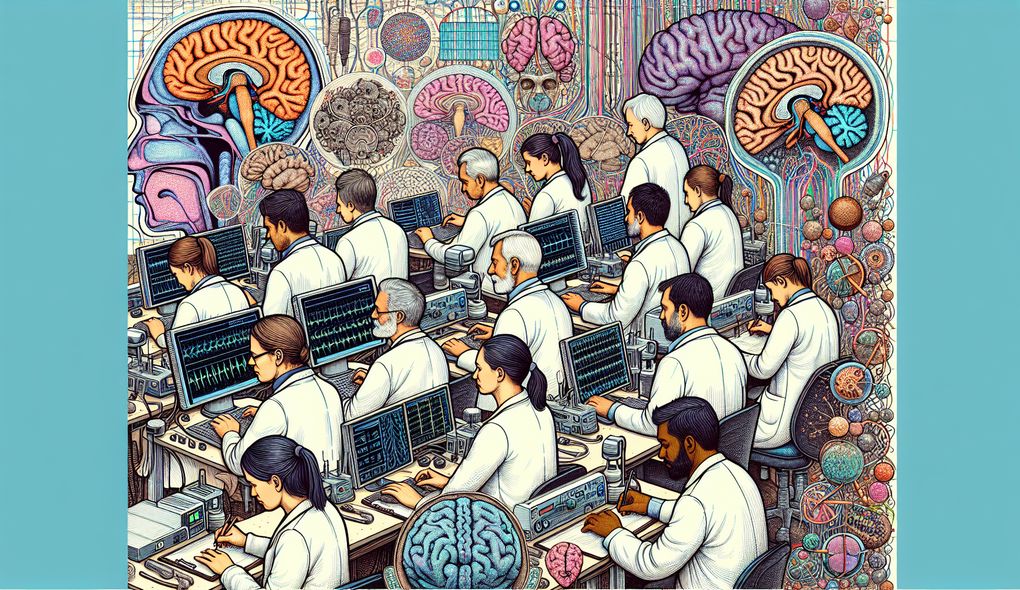Tell us about a time when you had to solve a complex problem related to a neurological condition.
SENIOR LEVEL

Sample answer to the question:
I once encountered a complex problem related to a neurological condition when I was working at a prominent neurology clinic. A patient presented with a rare neurodegenerative disorder that was causing severe motor dysfunction. The challenge was to accurately diagnose the condition and develop a comprehensive treatment plan. I gathered a team of specialists, including neurologists, physical therapists, and occupational therapists, to assess the patient's condition and determine the underlying cause. Through extensive testing, including EEG and EMG, we were able to identify the specific neurological abnormalities contributing to the patient's symptoms. We then collaborated to create a tailored treatment plan that included medication, physical therapy, and assistive devices. It was a complex process that required careful coordination and ongoing evaluation, but ultimately, we were able to significantly improve the patient's quality of life.
Here is a more solid answer:
During my time working as a Clinical Neurophysiologist at a renowned medical center, I encountered a complex problem involving a patient with epilepsy. The traditional methods of diagnosing and treating the condition were ineffective, and the patient's seizures were becoming increasingly severe. Recognizing the urgency of the situation, I conducted an in-depth analysis of the patient's medical history, including previous EEG recordings and medication regimens. Through meticulous examination, I identified patterns and triggers that had been overlooked. Armed with this new insight, I collaborated with the patient's neurologist to devise a customized treatment plan. This involved adjusting medication dosages and carefully monitoring EEG recordings to optimize seizure control. The patient's condition improved significantly, with a notable reduction in seizure frequency and severity. This experience highlighted the importance of thorough analysis and personalized approaches in managing complex neurological conditions.
Why is this a more solid answer?
The solid answer provides more specific details about the candidate's own clinical skills and analytical abilities. It demonstrates the candidate's ability to conduct an in-depth analysis, identify overlooked patterns, and collaborate with other medical professionals to devise a tailored treatment plan. However, it could still be improved by including specific outcomes and measurable achievements.
An example of a exceptional answer:
I was faced with a complex problem involving a young patient with an extremely rare neurological condition that was causing severe cognitive impairment. The condition had baffled several specialists, and the family was desperate for answers. Recognizing the urgency, I delved into extensive literature reviews and consulted with renowned experts in the field. Through my research, I discovered a novel approach that had shown promise in similar cases. With the parents' consent, we implemented a multidisciplinary treatment plan that combined medications, cognitive therapy, and lifestyle modifications. Over the course of several months, the patient's cognitive function gradually improved, and the family was overjoyed with the results. This experience emphasized the importance of staying informed about the latest research and collaborating with experts to provide innovative and effective solutions for complex neurological conditions.
Why is this an exceptional answer?
The exceptional answer goes above and beyond by showcasing the candidate's exceptional research skills, initiative, and ability to think outside the box. It demonstrates the candidate's dedication to ongoing education and professional development, as well as their willingness to collaborate and seek expert opinions. The specific details provided, such as the novel approach and the positive outcome, further strengthen the answer. However, it could still be improved by including specific measurable outcomes and highlighting the candidate's communication and interpersonal skills.
How to prepare for this question:
- Stay updated with the latest research and advancements in neurophysiology and neurological conditions.
- Develop strong analytical and problem-solving skills by actively seeking out complex cases and challenging yourself to think critically.
- Enhance your ability to collaborate and communicate effectively with a multidisciplinary team by participating in team-based projects or taking on leadership roles.
- Expand your knowledge and expertise in neurodiagnostic procedures and equipment by attending workshops, conferences, or pursuing additional certifications.
- Demonstrate your commitment to ongoing education and professional development by staying involved in research, publications, and clinical trials related to neurophysiology.
What are interviewers evaluating with this question?
- Outstanding clinical skills
- Exceptional analytical and problem-solving abilities

